7October 2023
In the world of cleaning companies, handling the disposal of cleaning waste is an essential task that requires careful attention. From the moment you hire a cleaning service, you may wonder, how do they handle the disposal of all the waste generated during the cleaning process? Well, let’s explore the typical ways in which cleaning companies tackle this issue, ensuring a clean and sustainable environment for all.
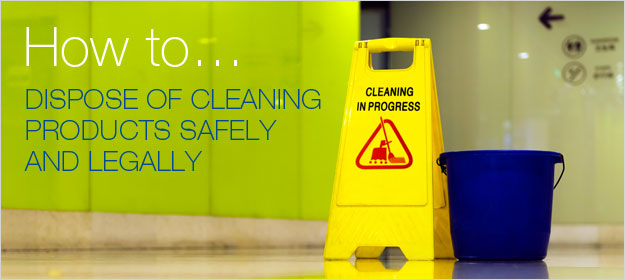
This image is property of blog.bunzlchs.com.
Overview of the Cleaning Industry
Cleaning companies play a crucial role in maintaining cleanliness and hygiene in various environments such as offices, homes, hospitals, and public spaces. These companies are responsible for not only cleaning surfaces and removing dirt and grime but also for the proper disposal of cleaning waste. The cleaning industry can be broadly classified into two main categories: residential cleaning and commercial cleaning.
Residential cleaning companies primarily focus on providing cleaning services for private homes and apartments. They may handle a wide range of cleaning tasks, including dusting, vacuuming, mopping, and window cleaning. Commercial cleaning companies, on the other hand, cater to businesses, institutions, and public spaces. Their services may include office cleaning, retail space cleaning, healthcare facility cleaning, and industrial cleaning.
Types of Cleaning Waste
Cleaning waste refers to the byproducts generated during the process of cleaning. It can vary depending on the type of cleaning being performed and the nature of the surfaces or materials being cleaned. Different types of cleaning waste include solid waste, liquid waste, and hazardous waste.
Solid waste includes items such as used cleaning wipes, paper towels, food waste, and packaging materials. Liquid waste can include used cleaning solutions, dirty water, and wastewater from cleaning equipment. Hazardous waste, on the other hand, consists of cleaning agents or materials that pose a risk to human health or the environment. This can include corrosive substances, flammable liquids, or chemicals that are toxic or harmful.
Classification of Hazardous Waste
Hazardous waste is a particular concern in the cleaning industry due to its potential to cause harm if not handled and disposed of properly. Different types of hazardous waste are classified based on their characteristics and potential risks. The Environmental Protection Agency (EPA) in the United States has established a system to categorize hazardous waste into different classes.
The four main hazardous waste characteristics include ignitability, meaning it can catch fire easily; corrosivity, indicating it can corrode materials; reactivity, suggesting it can produce dangerous reactions; and toxicity, meaning it can cause harm to living organisms. Proper identification of hazardous waste is essential to ensure appropriate disposal methods are chosen to minimize risks to human health and the environment.
Legal Requirements for Disposal
Proper waste disposal is not only a matter of ethical responsibility but also a legal requirement for cleaning companies. There are regulations at both the local and federal levels that govern the disposal of cleaning waste. It is crucial for cleaning companies to be aware of and comply with these regulations to avoid legal penalties and contribute to environmental protection efforts.
Local regulations may vary depending on the jurisdiction, but they typically include guidelines for waste segregation, collection, and disposal. These regulations may specify the types of waste that can be disposed of in regular trash bins and those that require special handling or treatment. Federal regulations, such as those enforced by the EPA, provide a framework for managing hazardous waste and ensuring its safe disposal.
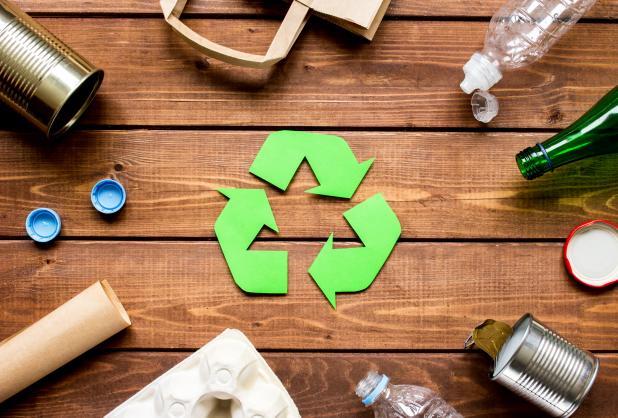
This image is property of www.cleaninginstitute.org.
Environmental Protection Laws
In addition to local and federal regulations, cleaning companies must also adhere to environmental protection laws. These laws aim to safeguard the environment and prevent pollution by imposing restrictions on the disposal of hazardous substances and waste. They often require cleaning companies to implement appropriate waste management practices, including recycling, to reduce the negative impact of their activities.
Compliance with environmental protection laws involves not only properly disposing of cleaning waste but also implementing measures to minimize waste generation and promote sustainable practices. By following these laws, cleaning companies can contribute to a cleaner and healthier environment for everyone.
Waste Segregation and Collection
Proper segregation and collection of cleaning waste are essential steps in responsible waste management. Waste segregation involves separating different types of waste materials to facilitate appropriate disposal methods. This ensures that hazardous waste is not mixed with non-hazardous waste, reducing the potential for accidents or contamination.
Cleaning companies should have designated bins or containers for different types of waste, clearly labeled to indicate the specific waste stream, such as recyclables, non-hazardous waste, or hazardous waste. This allows for easier identification, collection, and subsequent disposal or recycling of each waste stream.
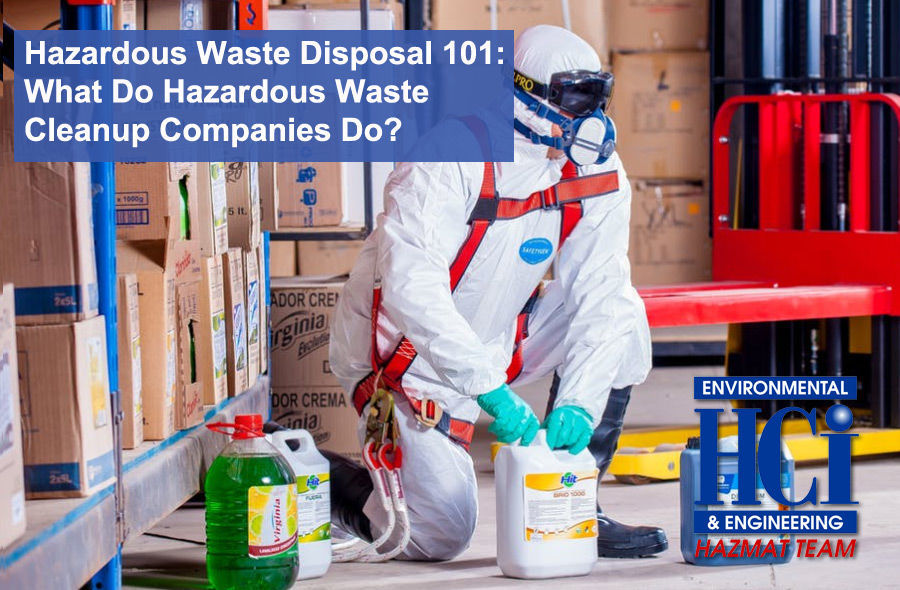
This image is property of www.hcienv.com.
Importance of Proper Collection
Proper collection of cleaning waste is vital to ensure that waste is managed in an efficient and safe manner. Cleaning companies should establish regular collection schedules to prevent waste from piling up and potentially causing hygiene issues or attracting pests. They should also consider partnering with waste management companies that specialize in the collection and transportation of different types of waste.
By working with professional waste management companies, cleaning companies can ensure that waste is collected and transported in compliance with legal requirements. These companies have the necessary expertise and equipment to handle various types of waste safely and responsibly. Proper collection practices not only contribute to a cleaner and healthier environment but also protect the reputation and integrity of cleaning companies.
Reusable and Recyclable Materials
In efforts to reduce waste and promote sustainability, cleaning companies should identify and prioritize reusable and recyclable materials in their operations. Reusable materials can include items such as cleaning cloths or mop heads that can be washed and reused multiple times. By investing in high-quality, durable cleaning tools and equipment, companies can minimize waste generation and reduce costs in the long run.
Recycling initiatives can also be implemented to ensure that waste materials are diverted from landfills and given a second life. Cleaning companies can establish partnerships with recycling facilities or waste management companies that specialize in recycling specific materials commonly used in the cleaning industry, such as paper, plastic bottles, or cardboard.
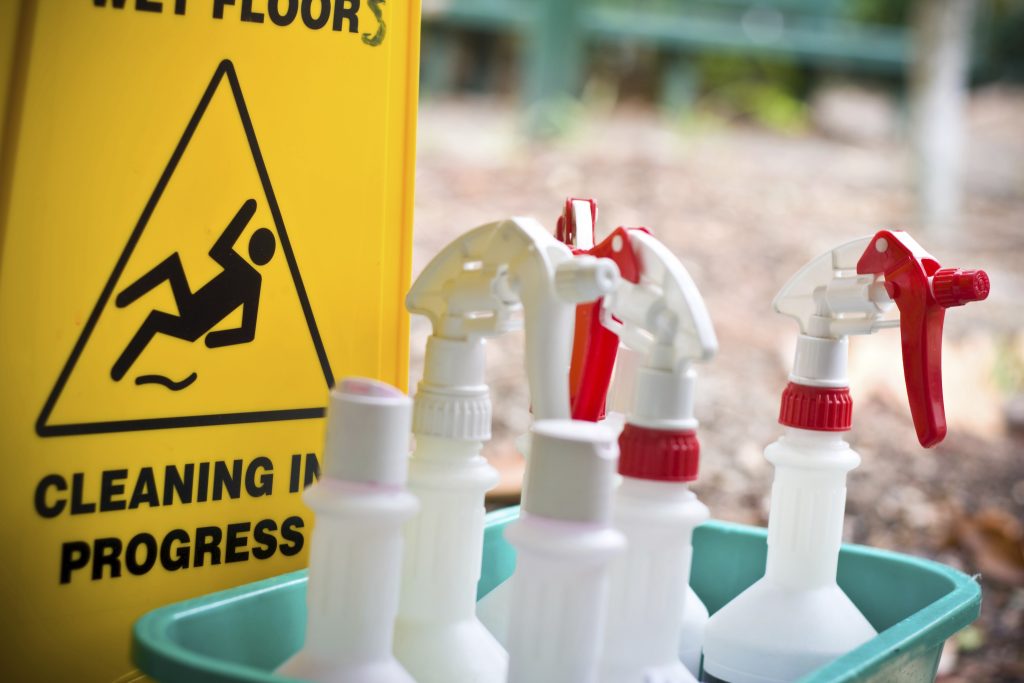
This image is property of blog.bunzlchs.com.
Proper Packaging and Labeling
Appropriate packaging and labeling of cleaning waste are crucial for efficient and safe disposal. Packaging guidelines should be followed to ensure that waste is contained securely, minimizing the risk of leaks, spills, or other accidents during transportation and disposal. Companies should use sturdy and leak-proof containers, such as sealed bags or bins, appropriate for the type of waste being collected.
Labeling requirements should be met to provide clear and accurate information about the contents of the waste and any associated hazards. Labels should include details such as the waste stream classification, handling instructions, and any required safety precautions. Proper packaging and labeling not only facilitate waste management processes but also ensure the safety of individuals involved in handling and disposing of the waste.
Disposal Methods for Non-Hazardous Waste
Non-hazardous waste generated by cleaning activities can often be disposed of through conventional means. This may involve collection by waste management companies and subsequent transportation to landfill sites where the waste is safely buried. However, as part of waste reduction efforts, cleaning companies should explore alternative disposal methods, such as composting or recycling for certain types of non-hazardous waste.
Collaboration with waste management companies is crucial for the proper disposal of non-hazardous waste. These companies can provide guidance on waste disposal options and ensure compliance with local regulations. By working together, cleaning companies and waste management companies can contribute to the efficient and sustainable management of non-hazardous waste.
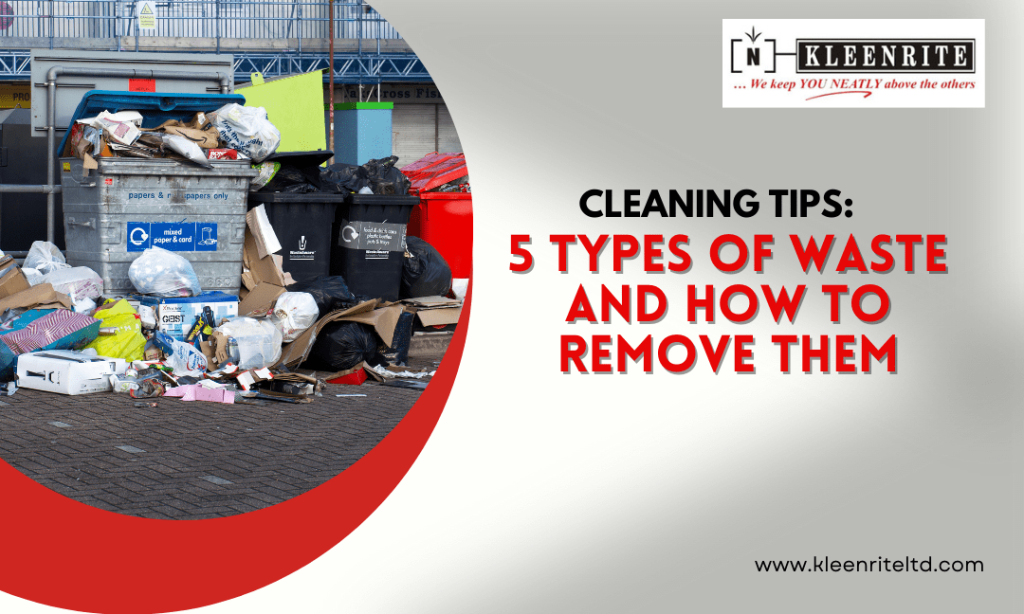
This image is property of i0.wp.com.
Disposal Methods for Hazardous Waste
Hazardous waste requires special handling and disposal due to its potential risks to human health and the environment. Cleaning companies should prioritize the safe handling of hazardous waste and ensure it is treated and disposed of in accordance with legal requirements. There are specialized disposal facilities equipped to handle hazardous waste, including incinerators, treatment plants, and licensed landfills.
Safe handling of hazardous waste involves proper containment, labeling, and storage to prevent leaks, spills, or exposure. Cleaning companies should establish protocols and train their employees on the safe handling and disposal of hazardous waste. In case of accidental spills or releases, they should have appropriate spill response plans in place to minimize the potential impact and address the situation promptly.
Waste Tracking and Documentation
Waste tracking and documentation are essential aspects of responsible waste management for cleaning companies. Keeping records of the types and quantities of waste generated, as well as its disposal methods, allows for better monitoring and control of waste management practices. It also helps demonstrate compliance with legal requirements and supports the development of waste reduction strategies.
Importance of waste tracking goes beyond regulatory compliance. It enables cleaning companies to identify areas where waste generation can be reduced or where recycling initiatives can be implemented. Tracking and documenting waste also provide transparency and accountability, allowing companies to communicate their environmentally conscious practices to clients, stakeholders, and the wider community.
Training and Education
Proper training and education of cleaning company employees are crucial for effective waste management. Employee training programs should cover various aspects, including waste segregation, handling, and disposal methods. By equipping employees with the necessary knowledge and skills, companies can ensure that waste is managed in a safe and responsible manner.
Training programs should also raise awareness among employees about waste disposal best practices, emphasizing the importance of environmental protection and sustainability. Employees should be encouraged to identify opportunities for waste reduction and recycling in their day-to-day activities. By fostering a culture of waste management excellence, cleaning companies can significantly contribute to the protection of the environment and the overall well-being of the communities they serve.
In conclusion, cleaning companies have a responsibility to properly handle and dispose of cleaning waste to protect human health and the environment. By understanding the different types of cleaning waste, complying with legal requirements, implementing proper waste segregation and collection practices, identifying reusable and recyclable materials, ensuring proper packaging and labeling, utilizing appropriate disposal methods, tracking waste, and providing training and education to employees, cleaning companies can demonstrate their commitment to responsible waste management. Through these efforts, they contribute to a cleaner, safer, and more sustainable future for everyone.
